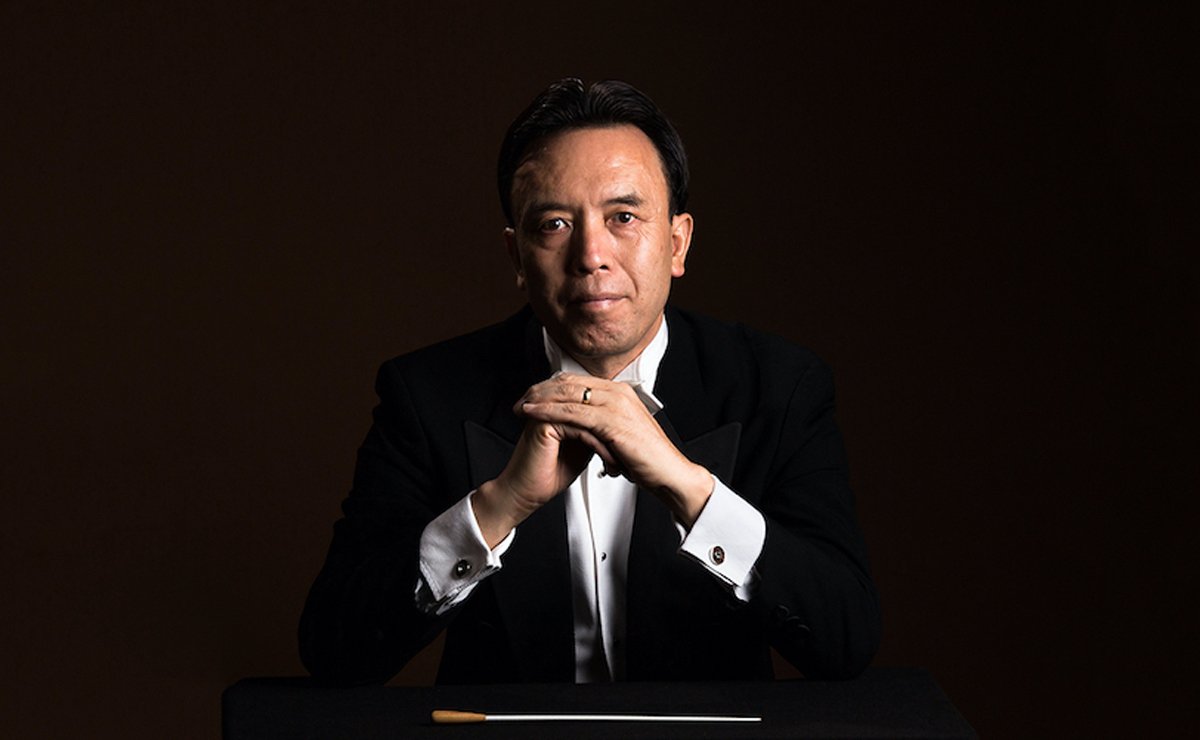
Jindong Cai
Jindong Cai is director of the US-China Music Institute, professor of music and arts at Bard College, and associate conductor of The Orchestra Now. Previously, Cai was a professor of performance at Stanford University. Over the 30 years of his career in the United States, Cai has established himself as an active and dynamic conductor, scholar of Western classical music in China, and advocate of music from across Asia. At Bard, Cai founded the annual China Now Music Festival. China Now presents new works by some of the most important Chinese composers of our time, with major concerts performed by The Orchestra Now at Bard’s Fisher Center for the Performing Arts, Lincoln Center, Carnegie Hall, and Stanford University. In 2019, the festival premiered Men of Iron and the Golden Spike by Pulitzer Prize–winning composer Zhou Long, a symphonic oratorio in commemoration of the Chinese railroad workers of North America on the 150th anniversary of the completion of the Transcontinental Railroad. With his wife, Sheila Melvin, Cai has coauthored many articles on the performing arts in China and the book Rhapsody in Red: How Western Classical Music Became Chinese. Their latest book is Beethoven in China: How the Great Composer Became an Icon in the People’s Republic.

Haiqiong Deng
A master player of the zheng and a veteran practitioner of the qin, having studied with master Lin Youren and Gong Yi, Haiqiong Deng has pursued creative endeavors to promote Chinese musical culture in North America through performance, research, and teaching. In 2023, Deng was chosen by the American Composers Forum to release an album of contemporary pieces on Innova Records. She received the 2017 Florida Heritage Award and was 2018 Florida State University College of Music Research Fellow. Deng’s groundbreaking inter/cross-cultural musical expressions include an album with Indian guru Nalini Vinayak, and compositions inspired by Indonesian gamelan and African kora. She has lectured on Chinese music and culture at Dartmouth College, Emory University, and UCLA. Deng directed the Florida State University Chinese Music Ensemble for 18 years. She received her BM in zheng performance from the Shanghai Conservatory of Music, and from Florida State University an MA in arts administration, MA in ethnomusicology, and PhD in musicology.

Joseph Lam
Joseph S. C. Lam is professor of musicology in the School of Music, Theatre and Dance at the University of Michigan. A musicologist and sinologist, Lam specializes in the musics and cultures of the Southern Song (1127–1279) and Ming (1368–1644) dynasties, and modern China (1900 to present). Lam learned qin playing from Madame Cai Deyun, and since then, he has been studying qin music with musicological and performance perspectives. Lam’s recent publications include “Eavesdropping on Zhang Xiaoxiang’s Musical World in Early Southern Song China,” in Senses of the City (2017); “Zhang Dai’s (1597– 1680) Musical Life in Late Ming China,” in Ming China (2019); “Kunqu Cross-Dressing as Artistic and/or Queer Performance,” in Oxford Handbook of Music and Queerness (2022); “Why and How Do Chinese Sing Shijing Songs?” in the Oxford Handbook of Music in China and the Chinese Diaspora (2023); “The Southern Story of the Western Wing: Traditional Kunqu Composition, Interpretation, and Performance,” in How to Read Chinese Drama (2022). Lam’s latest monograph is Kunqu, A Classical Opera of Contemporary China (2022).
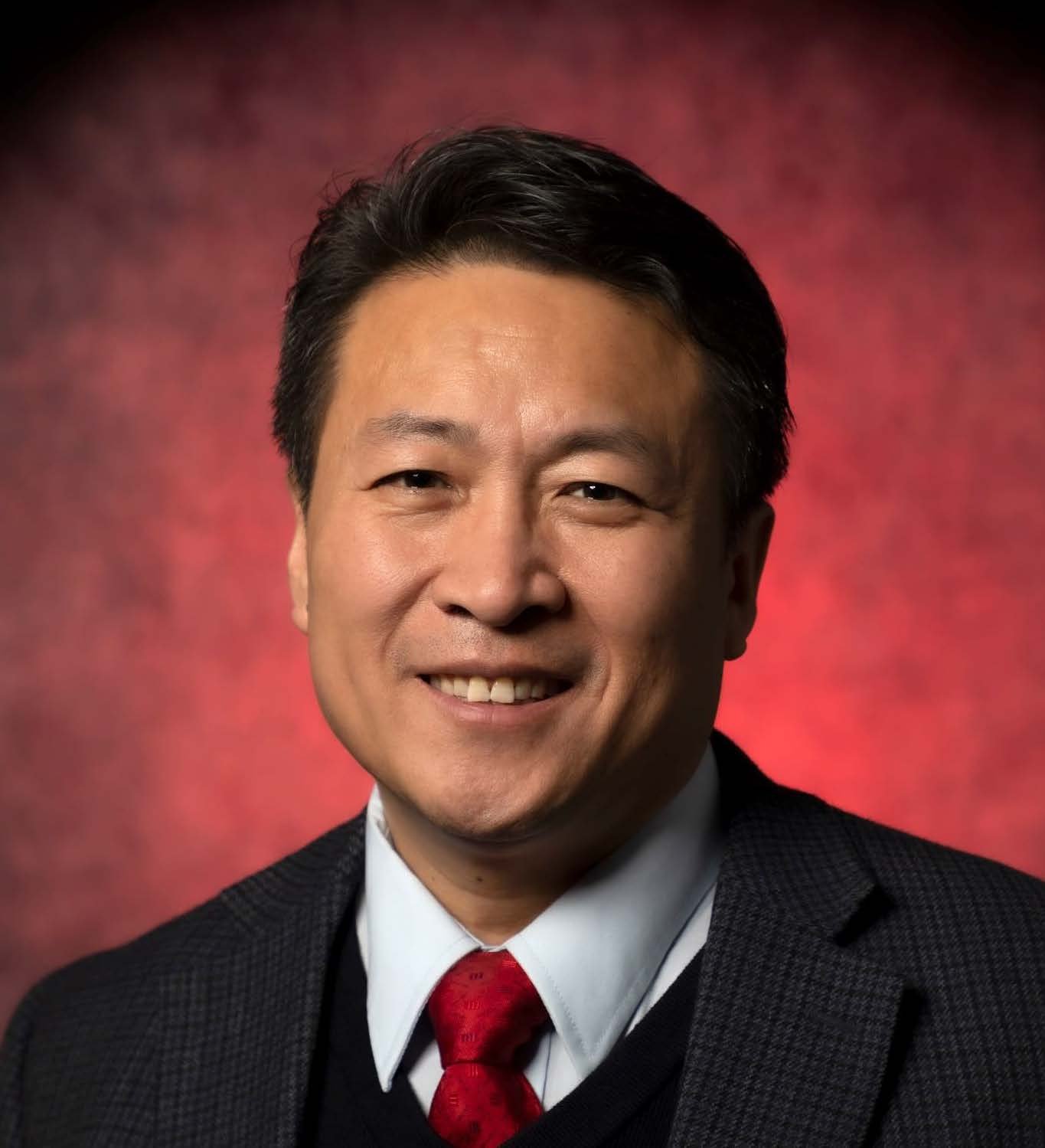
Huiwen Li
Huiwen Li has been a visiting assistant professor of Chinese at Bard College since 2021. Li’s teaching and research interests include Chinese language and culture, calligraphy, culture shock and adaptation, and culturally responsive teaching. He is president of the American Society of Shufa Calligraphy Education, a nonprofit organization serving educators, researchers, students, and enthusiasts of shufa calligraphy in North America. He came to Bard from Cleveland State University, where he taught Chinese language and culture, calligraphy, and research methodology. He is author/coauthor of numerous articles in publications including Confucius Studies, Frontiers in Psychology, Teaching Chinese in International Contexts, and Journal of Research on Chinese Teaching. Li received his BA in English language and literature from Shandong Normal University in Jinan, China; an MA in psychology in education from the University of Pittsburgh; and EdD from Duquesne University. He is a PhD candidate at Cleveland State University.

Wenrui Shi
Wenrui Shi CMC ‘24, born in Qingdao, started learning the guzheng when she was 9 years old. At 15, she fell in love with the guqin and was guided by Professor Zhao Jiazhen. She studied guqin with Xiao Xiao at East China Jiaotong University. In 2018, Shi won silver prize in the professional group of the first China-Canada Arts Festival and International Invitation Competition, gold prize in the Jiangxi Region of the Second Hongqin Cup, and first prize in the professional group of the first Folk Instrumental Music Art Exhibition in Jiangxi Province. In the 2019 Second Hongqin Cup, she won the gold prize for the Youth A Group. In 2022, she was awarded Outstanding Instructor of the Third Hongqin Cup. In addition, many of her students have won gold or silver medals.
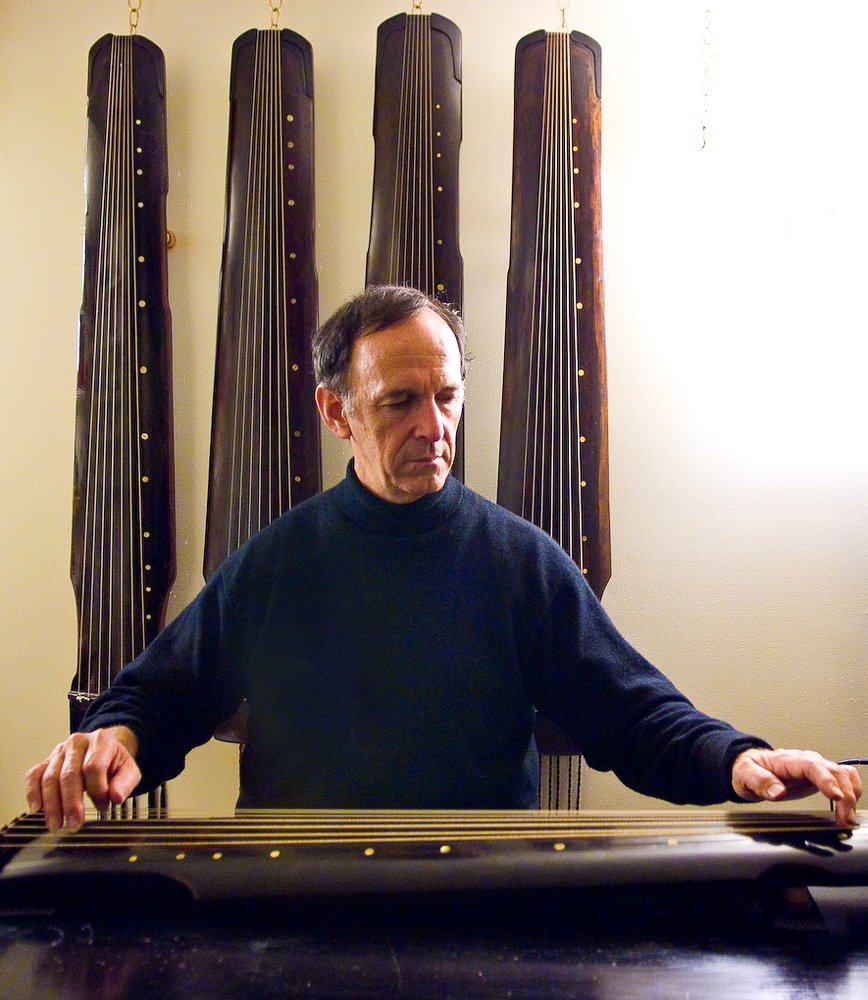
John Thompson
With the largest recorded repertoire for the guqin, John Thompson has recorded more than 280 melodies from 15th- through 17th- century guqin tablature, and his website complements each one with musicological, historical, and philosophical commentary. After a college degree in Western musicology and graduate studies in ethnomusicology, Thompson began to study the modern guqin tradition with Sun Yü-Ch’in in Taiwan. Moving to Hong Kong to consult with Tong Kin-Woon, he gained a reputation for fidelity, fluency, and feeling in his performances. In 1992, the National Union of Chinese Musicians invited him to Beijing for a seminar on reconstructing music from the earliest surviving guqin handbook (1425 CE). He was artistic consultant to the Festival of Asian Arts in Hong Kong, and published seven CDs of his musical reconstructions and four books of transcriptions. He continues to perform, teach, research, and create
new music for the guqin. In 2019, veteran Hong Kong film director Lau Shing-hon made a documentary about this work.

Trio of Three Continents
Trio of Three Continents features master musicians from China, Syria and Venezuela. Pipa virtuoso Gao Hong is joined by Syrian oud master Issam Rafea and Venezuelan harpist extraordianire Leonard Jacome.
In their performances they each play music from their cultures, demonstrate their instruments, join to together in free improvisations, and ad-lib live compositions that result in one-of-a-kind fusions. Their music is not Chinese, Syrian or Venezuelan, but a new form of world music that melds styles and sensibilities from three continents.
NOTE: The Trio of Three Continents is formally composed of Gao Hong, Leonard Jacome, and Senegalese Kora player Kadialy Kouyate. Due to unexpected circumstances Kouyate is unable to participate in this performance. In his place, the Trio welcomes oud player Issam Rafea, longtime collaborator with Gao Hong.
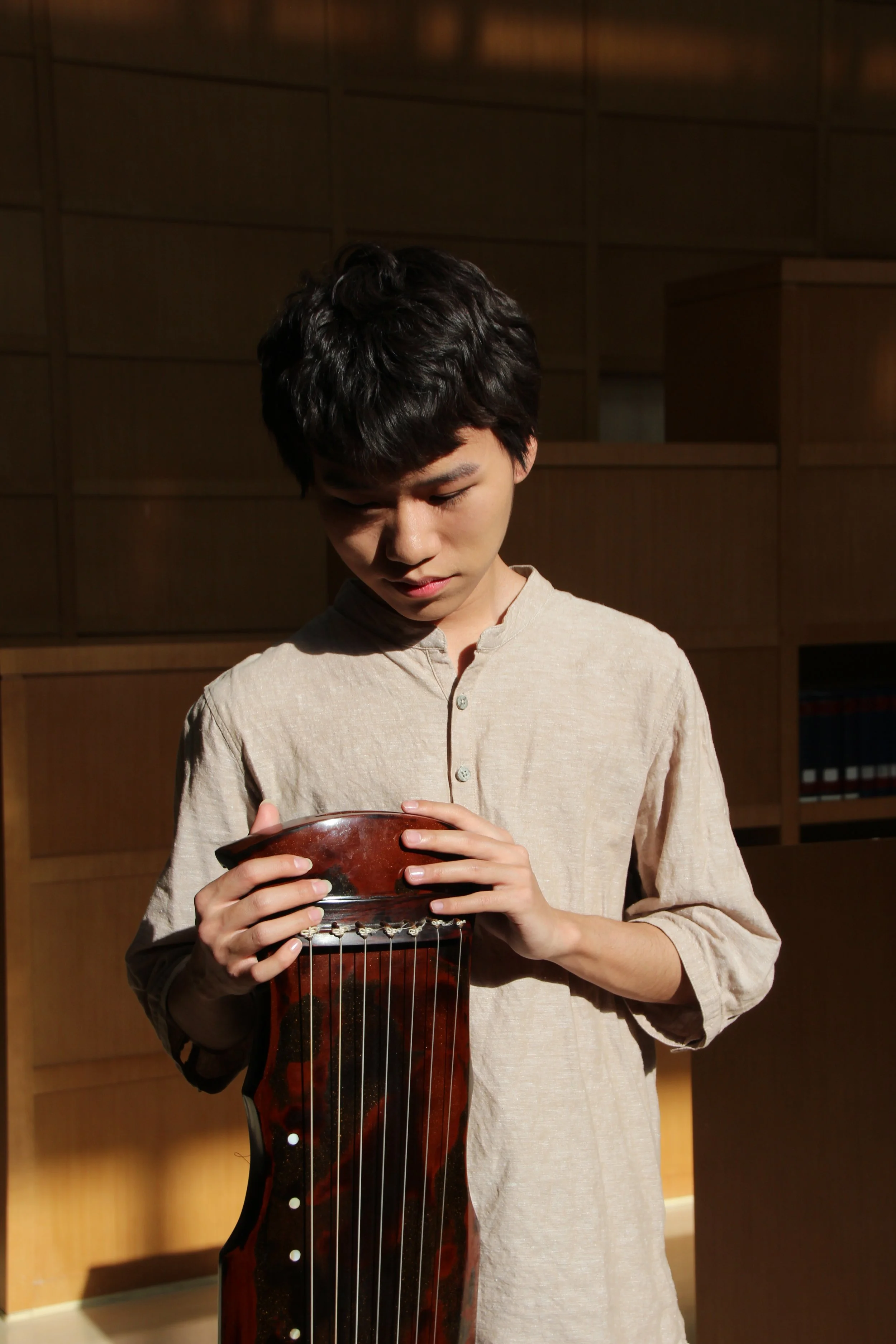
Bryan Zhe Wang CMC '24
Bryan Zhe Wang CMC ’24 is one of the first candidates in the Master of Arts in Chinese Music and Culture program at the Bard College Conservatory of Music, studies with guqin virtuoso Professor Zhao Jiazhen. Wang won gold awards in 2019 and 2022 in Chinese national guqin competitions. In the 2021 Singapore International Guqin Invitational Tournament, he ranked first in both the traditional and nontraditional categories. In 2022, he won the Bard Conservatory Concerto Competition. Before coming to Bard, Wang obtained a BA in English and MA in translation and interpretation from Beijing Foreign Studies University. While there, he played the guqin for the prime minister of Slovenia. Wang’s guqin playing has received over 160,000 views on Bilibili.com, one of China’s most popular video-sharing platforms. His latest guqin solo cover, “Thrill Me Suite,” was retweeted by Stephen Dolginoff, composer of the original musical Thrill Me.
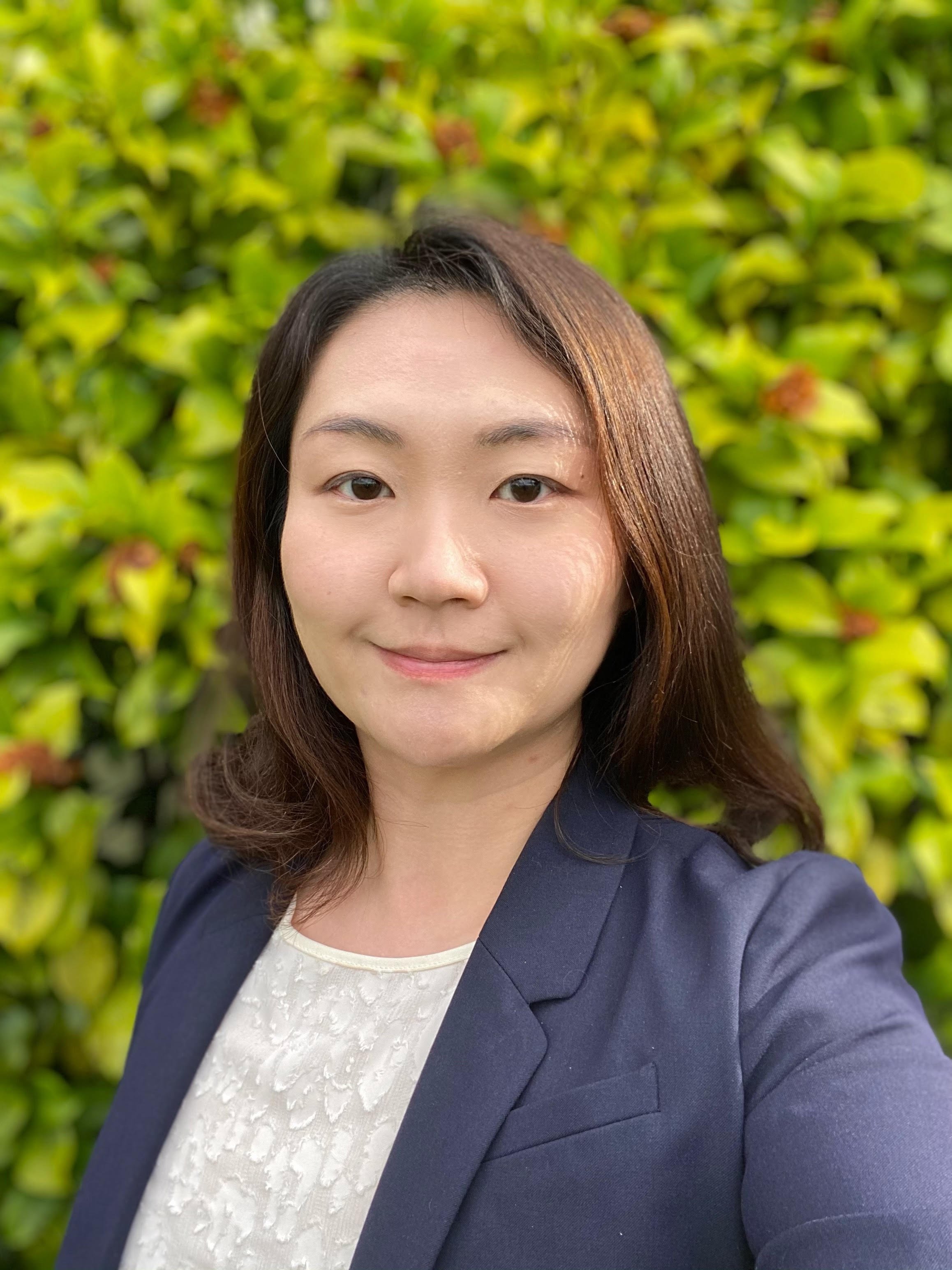
Shuangting Xiong
Shuangting Xion s assistant professor of Chinese in the Asian Studies Program at Bard College. Her areas of teaching and research include 20th-century Chinese literature and culture, Late Imperial Chinese literature, affect theory and aesthetics, Chinese cinema, and film and media studies, particularly the relation between emotion and politics and the mediating role aesthetics plays. Her current book- length project examines the evolution of melodramatic narratives of family, kinship, and the Chinese Revolution across media in 20th- century China. Publications include “The Legend of the Red Lantern” in The Lexicon of Global Melodrama (2022); and catalogue essays for the Jordan Schnitzer Museum of Art exhibition Graphic Ideology: Cultural Revolution Propaganda from China. She received teaching, research, and dissertation honors from the University of Oregon, where she received her MA and PhD. Her BA is from Renmin University, China. Xiong joined the Bard faculty in 2022.
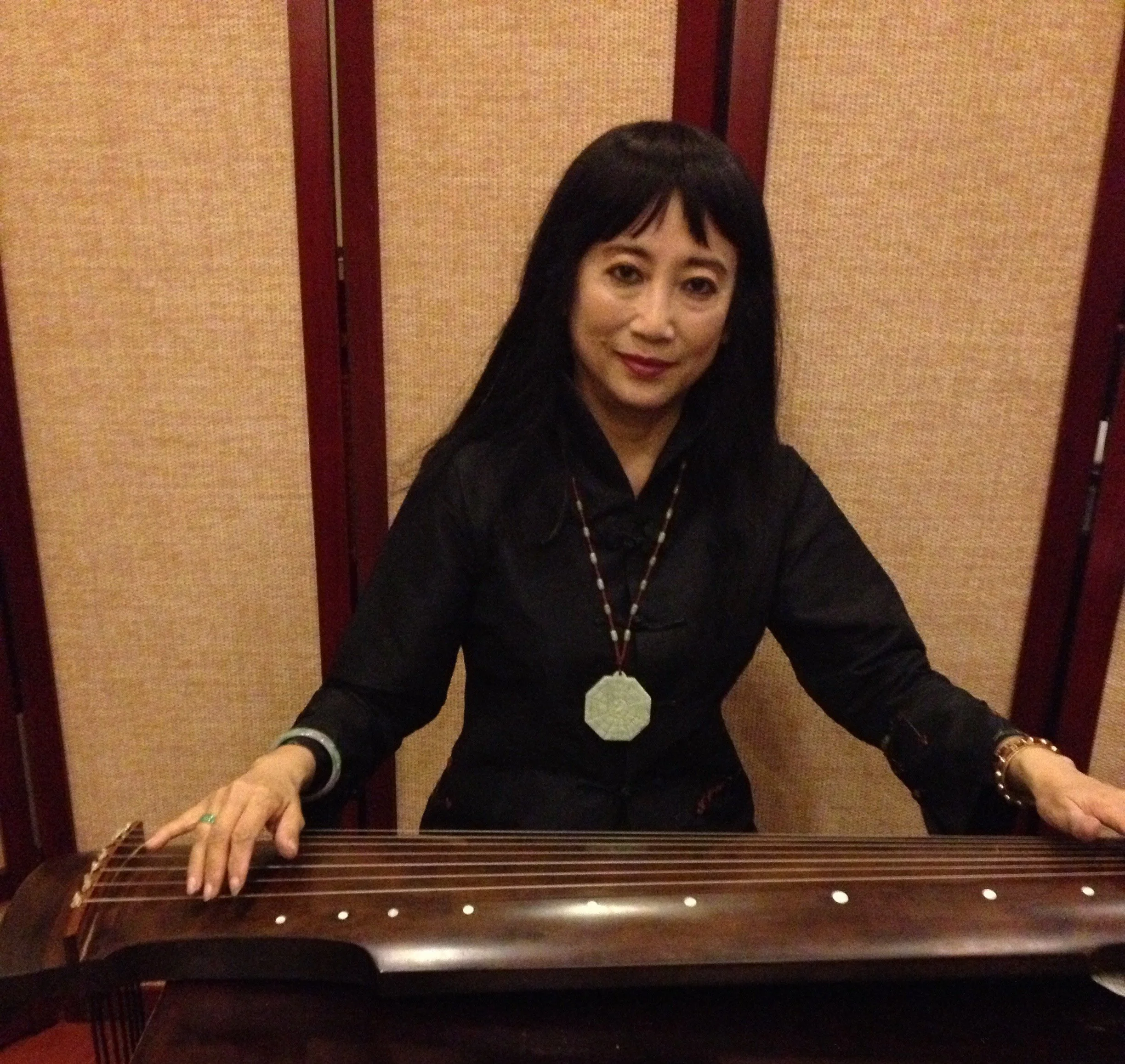
Mingmei Yip
A master qin performer, Mingmei Yip has given lectures and performances at venues such as the Metropolitan Museum of Art, Carnegie Hall, New York Philharmonic, Columbia University, Oxford University, Shanghai Conservatory of Music, Amsterdam University, China Institute in New York, and Oberlin Conservatory. She served as consultant for Beijing’s Chinese Qin Association, director of the Chinese Kun Opera and Guqin Research Association, artistic consultant for the New York Cultural Art Association, and on the academic board of the Chengdu International Qin Conference, among other positions. Yip has published 14 books, including two on the qin. She is an accomplished painter and calligrapher. Yip received her PhD in musicology from the University of Paris (Sorbonne), and was lecturer and senior lecturer of music at Chinese University of Hong Kong and Baptist
University, respectively. She researched the qin as an International Institute for Asian Studies fellow in Holland. As visiting professor at the US-China Music Institute of the Bard College Conservatory of Music, she teaches Chinese music history.

Zhao Xiaoxia
Zhao Xiaoxia is a master teacher of guqin at the Central Conservatory of Music, visiting scholar at the Royal Danish Academy of Music, China, and visiting professor at Singapore Raffles Music College. Since 1995, she has studied under the guidance of Professor Li Xiangting. As a soloist, she twice performed in the hall of UNESCO headquarters in Paris. She has appeared with the New Zealand Symphony, Sydney Symphony, Netherlands Symphony, Tokyo Philharmonic, and other well-known orchestras internationally, as well as in the Tokyo Music Festival, Schleswig-Holstein Music Festival, and Beijing Music Festival, among others. Since 2011, she has participated in the world tour of composer Tan Dun’s Martial Arts Trilogy. At the opening ceremony of Expo 2019, the world horticultural exposition in Beijing, her guqin performance showed the charm of Chinese culture to the heads of state of dozens of countries.
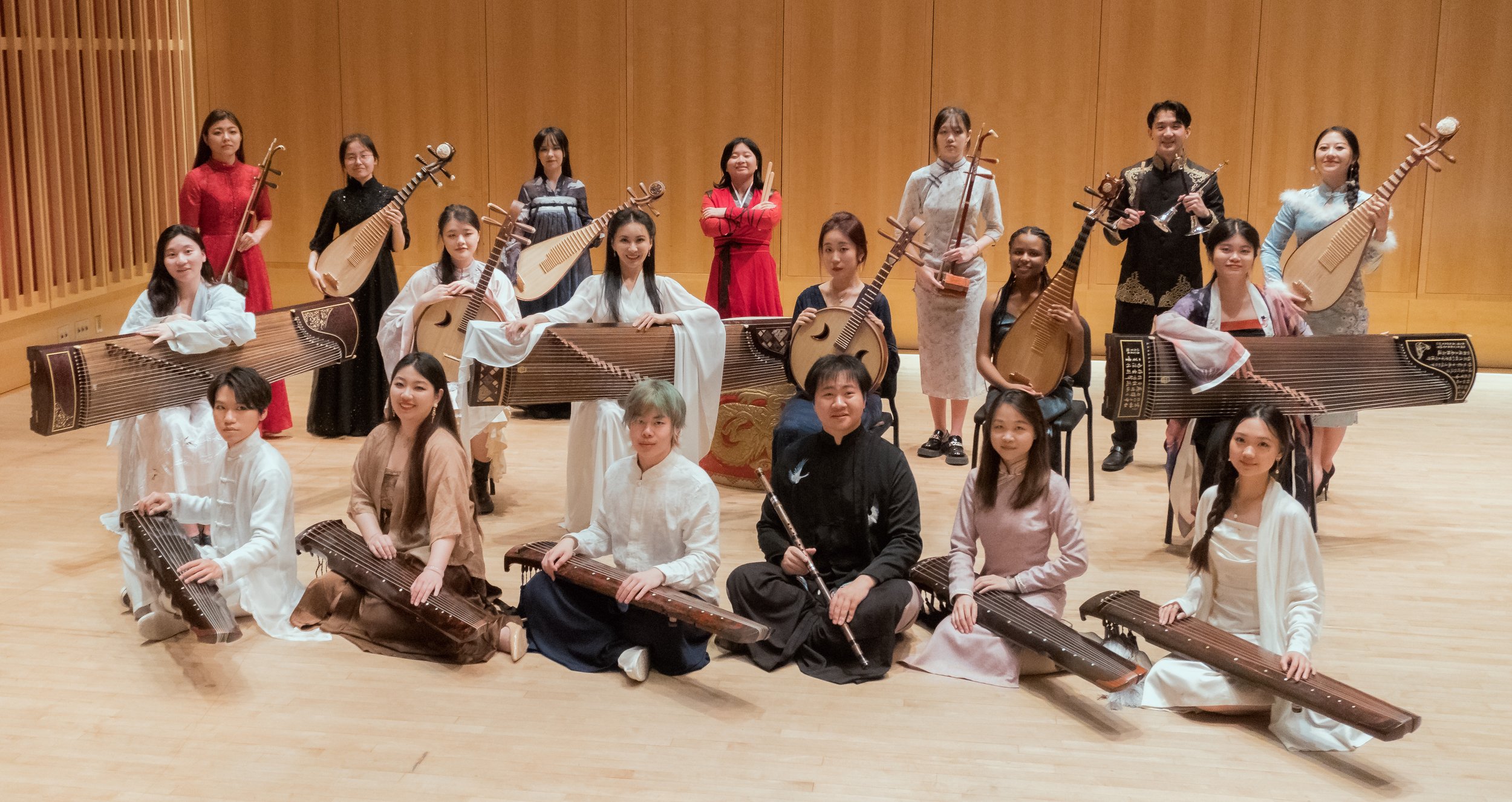
Bard Chinese Ensemble
Chinese Ensemble is one of the key components of the Chinese instrument major at the Bard Conservatory, offering numerous public performance opportunities for our undergraduate and graduate students of Chinese instruments. Students of Western Instruments are also encouraged to participate, as well as non-majors with interest in Chinese music. The Ensemble performs at least one major concert on campus every semester, with other performances both on and off campus throughout the year.












